Iranian MP Warns Land Subsidence Crisis Will Drive Residents Out Of Esfahan
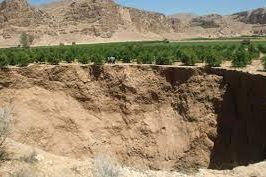
A parliamentarian has stressed the need to tackle the "very dangerous" issue of land subsidence in Iran's Esfahan, warning it will soon drive residents out of the city.

A parliamentarian has stressed the need to tackle the "very dangerous" issue of land subsidence in Iran's Esfahan, warning it will soon drive residents out of the city.
Mehdi Toghyani said, "Land subsidence in Esfahan has reached a very dangerous stage, in a way that if we cannot revive the aquifers over the next seven or eight years, the civilization will not remain.
"The danger of land subsidence in the city is so serious that if no action is taken for it in the coming years, we will all have to leave Esfahan. The entire Esfahan plain is at risk of subsidence due to the dryness of the rivers in the central plateau of Iran."
Recent years have seen a surge in reports of sudden land subsidence in streets and residential areas across several Iranian cities. Esfahan province stands particularly vulnerable, with even its historic center, schools, and ancient buildings experiencing subsidence.
The phenomenon of land subsidence, affecting numerous plains in Iran, has not only inflicted damage and destruction upon historical structures but has also disrupted the lives of millions. Experts warn that without intervention, it could lead to significant financial losses and human tragedy in the near future.
In June 2023, an official from the Ministry of Energy described the situation in many provinces of the country as "critical," highlighting that land subsidence in some areas exceeds global standards by "up to a hundred times."
In August, Iran International obtained documents indicating that officials of the Islamic Republic were aware of significant land subsidence risks but chose not to disclose this information to the public.

The victory of hardliners in Iran’s March 1 low-turnout parliamentary and Assembly of Experts elections will have implications for Tehran’s foreign policy and the selection of the next Supreme Leader.
Turnout hit a record low, with just 41% of eligible voters casting ballots, according to government figures many consider inflated. During the last parliamentary contest in 2020, there was a 42% turnout. This was in keeping with a trend line of diminished electoral enthusiasm in recent years owing to mass candidate disqualifications, disaffection with the Islamic Republic’s system of governance, and dismal state management.
The ascension of the victors in the election represented a further narrowing of the circle of power in Iran. Reformists like former President Mohammad Khatami have been effectively banished from significant positions in the Islamic Republic. Khatami never even received a post from the Supreme Leader Ali Khamenei after his presidency, in contrast with some of his predecessors. Pragmatists have also suffered. Former President Hassan Rouhani was disqualified from running for the Assembly of Experts, despite Rouhani having held a seat there since 2000, and like Khatami, he never received a post-presidential landing spot from Khamenei. Rouhani’s former justice and intelligence ministers were also disqualified.
Even longtime conservatives have suffered in this contest. Mohammad Bagher Ghalibaf, the current speaker of parliament, who was reelected, nevertheless finished in fourth-place in Tehran, which was a turnaround from Ghalibaf finishing in first-place in 2020. He won fewer votes than ultraconservatives Mahmoud Nabavian, young upstart Amir-Hossein Sabeti, who has been a television host on the state broadcaster IRIB, and Hamid Rasaee.
Ghalibaf’s fall is consistent with a trend of humiliation enjoyed by political dynasties and personalities during Khamenei’s tenure—Ghalibaf’s predecessor as speaker Ali Larijani was barred from running for president in 2021. His brother Sadegh Larijani, a former chief justice and onetime member of the Guardian Council, did not win a seat on the Assembly of Experts in 2024, despite being a member of the chamber since 1999.
The current election will not change the fundamentals of the Islamic Republic’s policies or its relations with the United States. Structurally, parliament is subordinate to the decisions and political whims of the Supreme Leader and the Supreme National Security Council (SNSC) on the most sensitive files, for example the nuclear program. However, the occupants of the speakership of parliament and the chairmanship of the Assembly of Experts will be important, given that the speaker is a standing member of the SNSC, and the chairman of the new Assembly of Experts may very well be in place when it is constitutionally tasked with selecting a successor to Khamenei, who turns 85 this year.
Close attention should therefore be paid to potential candidates for the speakership of the new parliament.
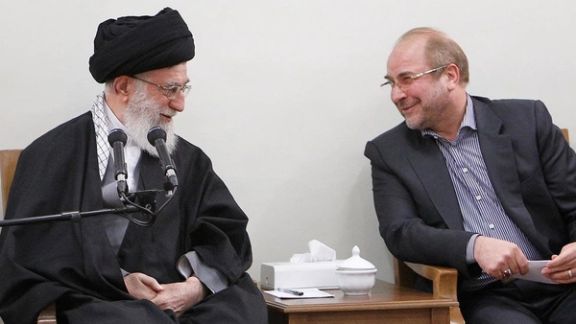
Mohammad Bagher Ghalibaf
Ghalibaf faces headwinds in retaining his post as speaker of parliament. Newly-emboldened members of parliament like Hamid Rasaee, who received more votes than Ghalibaf in Tehran, have called for his ouster and proclaimed him a “hypocrite.” There has even been speculation in Iranian media of Ghalibaf’s credentials being held hostage to smooth the way for the credentials of controversial incoming members of parliament like Rasaee to be approved despite Rasaee, who has previously served in parliament, firing pointed barbs at Islamic Republic mainstays like the late Islamic Revolutionary Guard Corps (IRGC) Quds Force Commander Qasem Soleimani. Khamenei had warned candidates to avoid inflammatory statements which cause division. Ghalibaf, a former commander of the IRGC’s Khatam Al-Anbiya Construction Headquarters and Air Force, has been trailed by sensational allegations of corruption for much of his recent career, especially as mayor of Tehran. But he has always been protected by Khamenei and never held accountable.
This raises the prospect that Khamenei will let it be known that he prefers for Ghalibaf to retain his seat as speaker of parliament in the interest of stability. In fact, his predecessor, Larijani, was the longest-serving speaker, holding the post from 2008 until 2020. But there is precedent for speakers of parliament in the Islamic Republic to serve only four years in the role, which Ghalibaf has held since 2020. For example, Gholam-Ali Haddad Adel was speaker from 2004 until 2008. Mehdi Karroubi was speaker for two, non-consecutive four-year stints.
A choice to retain Ghalibaf would be a safe choice for the system, given Khamenei’s advanced age and the system preparing for what it hopes will be a smooth succession. The role of the speaker as a member of a critical body like the SNSC in this context should not be underestimated. It would also signal more continuity than change in policymaking given that the internal dynamics of the SNSC would remain the same.
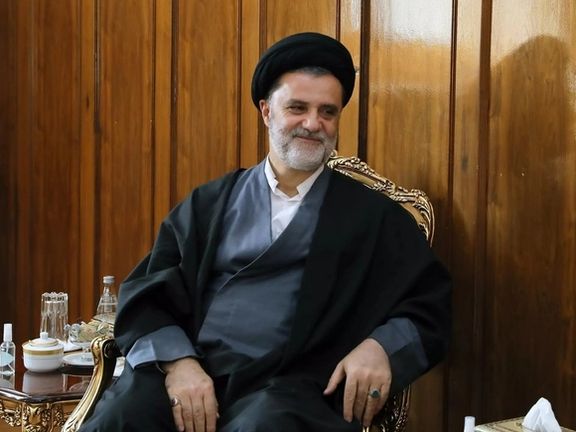
Mahmoud Nabavian
Nabavian achieving a first-place finish in Tehran will bolster speculation about the strength of his stock to become speaker of parliament. Nevertheless, a first-place finish in Tehran is not necessarily the only path to becoming speaker. For example, during the 2016 parliamentary elections, Ali Larijani became speaker after coming in second-place in Qom and prevailed over former First Vice President Mohammad Reza Aref, who came in first-place in Tehran.
This is not Nabavian’s first time serving as a member of parliament—he was a legislator from 2012 until 2016 and then again from 2020 until the present. A cleric by training, he taught at the Imam Khomeini Educational and Research Institute, where he grew close with the late Ayatollah Mohammad-Taghi Mesbah-Yazdi. Known as the “crocodile,” he held hardline views, arguing that “accepting Islam is not compatible with democracy” and advocating for Iran to develop nuclear weapons. An opponent of the Iran nuclear deal, Nabavian has hewed closely to his mentor’s radicalism, proclaiming that “we don’t aspire to obtain a nuclear bomb, but it is necessary so we can put Israel in its place.” He has also said, “we should not remain within our borders” and boasting that “now Iran’s borders are in Syria, Lebanon, Yemen, and Iraq.”
Khamenei is the decision-maker on Iran’s nuclear program. However, if Nabavian were to become speaker, he would join the SNSC, and thus have a platform to influence debates over the nuclear program, at a time when there have been growing calls from some quarters of the Iranian establishment to pursue nuclear weapons. It is important not to overstate the power of the speaker on the SNSC, but it would usher in an even greater hardening within the SNSC—whose membership has grown increasingly conservative in recent years. This is because Ghalibaf, while being conservative, is not on record publicly as pushing for Tehran to develop a nuclear weapon—in fact in 2008, Ghalibaf told an audience at the World Economic Forum in Davos that “we don’t need any atomic weapons or unconventional weapons.” If Nabavian becomes speaker, he would also break the trend of the last three speakers of parliament being non-clerics.
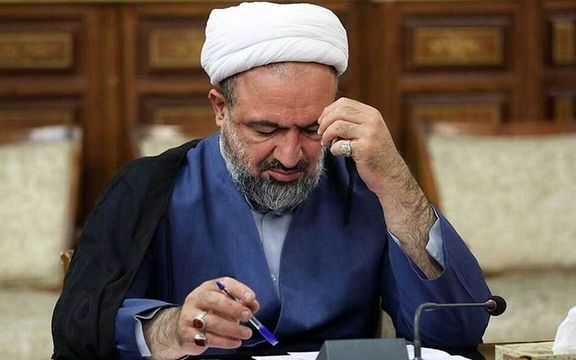
Other Candidates
Iranian media has mentioned other candidates for speaker, including Hamid Rasaee, Morteza Agha-Tehrani, and Manouchehr Mottaki. Rasaee has served in parliament during previous terms, worked at the IRGC’s research center, served as an advisor to the culture minister, and lived in Africa in the 1990s. However, placing Rasaee in such a leadership role would be a risky bet as succession looms large given his explosive tendencies, including criticism of an in-law of Khamenei. He has also faced off against senior operatives of the Office of the Supreme leader, like Khamenei’s intelligence advisor Asghar Mir-Hejazi, which likely will not improve his stock, despite the third-place finish in Tehran.
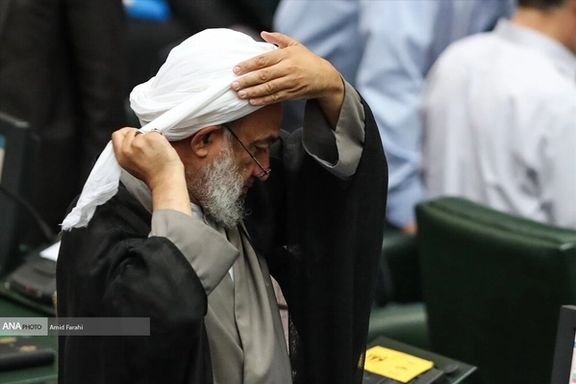
Agha-Tehrani, who previously vied for the speakership in 2020, served as Mahmoud Ahmadinejad’s ethics advisor during his presidency and represented Khamenei in North America, residing in both Canada and the United States. Like Nabavian, Agha-Tehrani also taught at Mesbah-Yazdi’s Imam Khomeini Educational and Research Institute. Agha-Tehrani, a critic of the Iran nuclear deal, may have difficulties in the speakership contest due to him reportedly holding a US Green Card at one point. In 2020, parliament passed a measure banning US Green Card holders from running for the presidency. Agha-Tehrani’s leadership of the Paydari Party was also contested over the situation, with Sadegh Mahsouli replacing him as secretary-general in 2021.
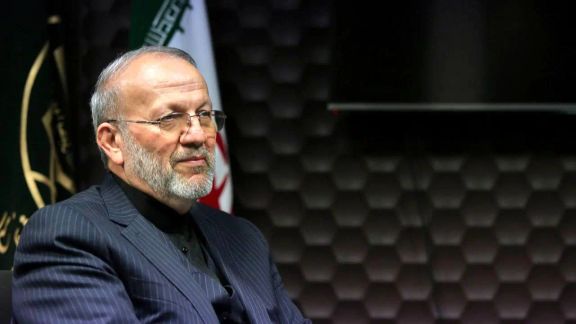
Mottaki, who came in eighth place in Tehran, served as foreign minister during the Ahmadinejad administration until he was fired while on official travel in Africa. He will be the first former foreign minister to hold a seat in parliament after heading the Ministry of Foreign Affairs. Before becoming foreign minister, Mottaki also served as a member of parliament, was a deputy foreign minister, and ambassador to Turkey and Japan. However, his firing as well as being disqualified from running for the presidency in 2013 by the Guardian Council may weaken his candidacy as it raises questions about Khamenei’s confidence in him.
In terms of resume, Ghalibaf and Mottaki are the most qualified managerially—with both serving in senior positions in the IRGC, parliament, and Ministry of Foreign Affairs, respectively. The credentials of Nabavian, Rasaee, and Agha-Tehrani, aside from stints in parliament, are more ideological. This puts them at a disadvantage as all speakers of the Islamic Republic’s parliament had more stature and a combination of executive and legislative credentials within the system ahead of assuming the office.
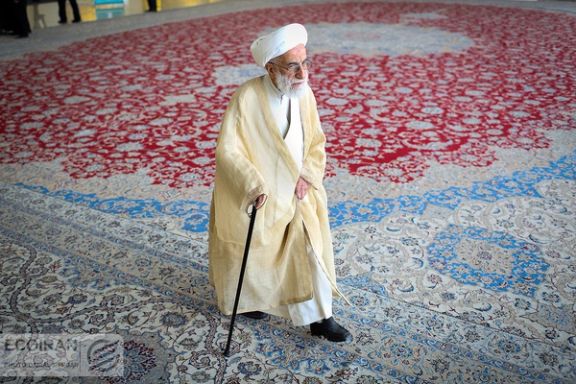
Chairman of Iran’s Assembly of Experts
Ayatollah Ahmad Jannati, at age 97, decided not to stand for reelection to the Assembly of Experts for the upcoming term. Jannati has served as its chairman since 2016. With Khamenei turning 85 this year, this leaves a vacancy in a post which will likely preside over the selection of the next supreme leader following his death.
During the last succession in 1989, then-Speaker of Parliament Ali Akbar Hashemi Rafsanjani campaigned for Ali Khamenei to be selected as Supreme Leader, claiming to have heard Khomeini suggest him as “a suitable candidate.” However, no hard evidence has ever surfaced to show a preference by Khomeini. If any such evidence existed, Khamenei and the regime would have long showcased it to buttress his legitimacy. However, Khamenei is believed to be planning his succession. A report last year indicated that only the chairman of the Assembly of Experts and members of a subcommittee it empaneled that was tasked with the possibility of naming a deputy supreme leader have knowledge of its innerworkings. This positions Jannati’s replacement as chairman in a critical role given his likely proximity to Khamenei’s succession wishes.
Since 1989, all chairmen of the Assembly of Experts have been Khamenei loyalists, with the prominent exception of Rafsanjani, who occupied the role from 2007 until 2011 and had more independent stature given his original revolutionary credentials. Two—Mahmoud Hashemi Shahroudi and Mohammad Yazdi—served as chief justice prior to becoming chairman, and one—Mohammad-Reza Mahdavi Kani—was prime minister and interior minister.
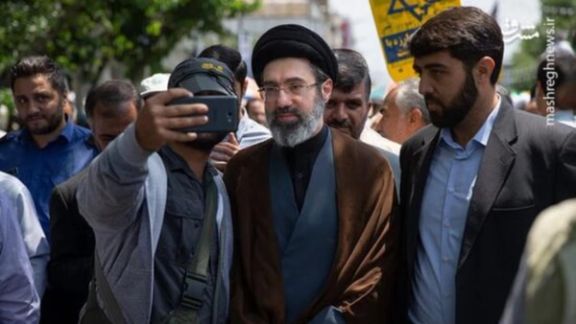
This positions Ebrahim Raisi as a potential candidate to succeed Jannati as chairman of the Assembly of Experts. Raisi has been a vice chairman under Jannati and has served as both chief justice and president, which is consistent with Mahdavi-Kani, Shahroudi, and Yazdi’s executive and judicial experiences, respectively. However, it would be unprecedented for an incumbent president to concurrently serve as chairman of the Assembly of Experts. It would also raise questions as to whether Khamenei is positioning Raisi as merely a placeholder for another Khamenei-preferred candidate like his son Mojtaba or whether this is a further coronation of a Raisi supreme leadership, given the series of powerful posts he has added to his resume throughout his career. Right now, Raisi is the most qualified individual in the Islamic Republic to chair a succession—having presided over two branches of government. No other cleric has such a resume.
Nevertheless, Raisi is not the only candidate for the chairmanship. The last three chairmen of the Assembly of Experts—Shahroudi, Yazdi, and Jannati—have concurrently served on the Guardian Council. That leaves open the prospect that a sitting member of the Guardian Council will ascend to the Assembly of Experts chairmanship like Alireza Arafi, Ahmad Khatami, or Ahmad Hosseini Khorasani. Alternatively, the Assembly of Experts may decide to anoint a chairman from its current Executive Board which includes Mohsen Qomi, who is a dependable Khamenei confidante, and works in his office as a deputy advisor for international affairs.
Starting in May, the selections for these leadership posts will be revealed. The occupants will play key roles in the debates and deliberations of the Islamic Republic as Khamenei ages.
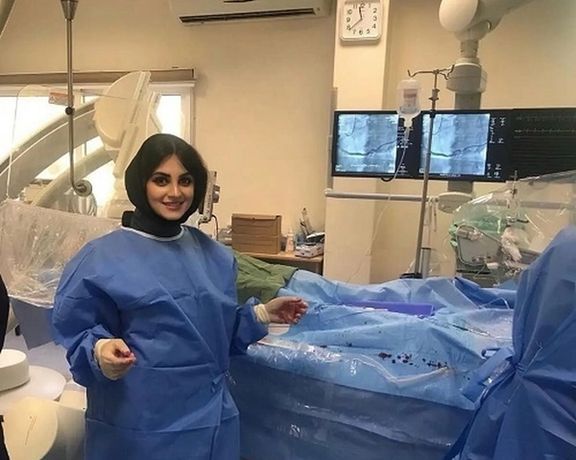
In response to a trend of young doctors' suicides in Iran, the Medical Council Of Iran has announced the formation of a fact-finding mission.
Parastoo Bakhshi, a 34-year-old specialist in cardiovascular diseases, took her own life at her residence in Noorabad Delfan Hospital in Lorestan Province, the latest in a string of mystery deaths.
The confirmation came from an official statement by the Medical Council Of Iran, citing "excessive pressure in the workplace" as a contributing factor.
Bakhshi's body was discovered by staff members in the hospital's dormitory last Saturday night, sparking shock and grief among her colleagues and the medical community at large.
Ali Salahshour, head of the Public Relations and International Affairs Department of the Medical Council of Iran, took to Instagram to highlight the additional burden Bakhshi faced after the loss of both her parents in the past four years.
Farhad Teimourzadeh, a physician and university professor, also echoed the sentiments on social media, condemning those in positions of power who exert pressure on medical residents.
Suicide among medical students, particularly in Iran, has become a growing concern, with several reports documenting the issue in recent years. According to a study conducted by a psychiatric association last year, the suicide rate within the medical community has seen a significant rise, ranging from 3.1 to 5 times higher than previous years.
In February, the head of the Iranian Psychiatric Scientific Association disclosed the news of 16 medical residents who had taken their own lives in the past year alone.

US President Joe Biden faced criticism on Tuesday as the Hamas chief visited Tehran and praised Israel’s “political isolation” – just a day after the UN Security Council voted for a ceasefire Israel opposed.
The Biden administration abstained from using its veto power Monday as members of the UN’s most powerful body voted to demand an immediate ceasefire in Gaza. The decision enraged the Israeli government and its supporters in Washington, who felt their government had “betrayed” Israel and sided with Hamas.
That sentiment only intensified when the Hamas leader traveled to Iran in what some critics of Joe Biden called “a victory lap”. The red carpet was ceremoniously laid out to welcome him, a carefully choreographed spectacle aimed at unnerving adversaries and, crucially, to bolster the Islamic Republic's image as the unwavering defender of the Palestinian cause.
“Iran stands at the forefront of supporting the cause and people of Palestine,” Haniyeh said. “I extend special thanks to the Supreme Leader of the Islamic Revolution of Iran, the President of Iran, and the people of Iran.”
Critics of the Biden administration, predominantly from the Republican side, interpret this as the epitome of a failing foreign policy, particularly concerning the Middle East and the regime in Tehran.
“Biden's confused, contradictory policies regarding Israel's struggle against Hamas and Iran are dangerous,” former US national security advisor John Bolton wrote in the Hill. “America should flatly reject the concept of Hamas having a "terrorist veto" over Israel's right to self-defense. If we don't, Israel and our anti-terrorism efforts globally will be significantly weakened.”
The war in Gaza, and the US response to it, has become yet another wedge, widening and deepening the partisan divide in American politics. The unbridgeable rift places President Biden in an exceedingly challenging position, where any decision he makes is susceptible to criticism from both sides simultaneously.
“Today the Biden Admin betrayed Israel and sided w/ Iran-backed Hamas terrorists who continue to hold US hostages,” Senator Bill Hagerty (R-TN) commented on X. “The Admin is so desperate to appease the pro-Hamas left that it is willing to advocate against the interests of our ally & our own citizens still held hostage.”
This, naturally, is not how Democrats, particularly those labeled by Hagerty as the “pro-Hamas left,” perceive the situation or the President's role. In their eyes, Biden has not gone far enough in confronting the Israeli government and halting what nearly every international and aid organization has termed a humanitarian crisis.
“To pretend that Israel is not violating international law or interfering with US humanitarian aid is absurd on its face,” Senator Bernie Sanders (D-VT) said Tuesday after a spokesperson for the Department of State told reporters that there were no reasons to dispute Israeli assurances that it was complying with humanitarian law in Gaza.
“The state department’s position makes a mockery of US law and assurances provided to Congress,” Sanders continued.
Jeremy Konyndyk, a former senior Biden official who now heads Refugees International, also accused Washington of not doing enough to pressure Israel.
“You can't fight famine by half-measures, and that seems to be all the Biden administration can muster right now,” Konyndyk posted on X. “Until Biden is ready to impose real policy consequences on Netanyahu's government, the famine will continue.”
Given the fervor and intensity of stances on both sides of the aisle, make it difficult to anticipate the Biden administration's course of action in the days and weeks ahead.
The potential invasion of Rafah by Israeli forces threatens to escalate the already strained relationship between the US and Israel to its breaking point. US Vice President Kamala Harris recently called it a “huge mistake” that could have “consequences” for Israel.
These developments are viewed from Tehran with triumph and glee. The Iranian regime has no doubt increased its influence since the October 7th attack on Israel. Israel’s image, meanwhile, has been seriously challenged, if not tarnished. Meanwhile, the Islamic Revolutionary Guards (IRGC) and its armed proxy groups across the region have grown in cohesion and confidence.
Iran's Supreme Leader Ali Khamenei now likely wields greater leverage in managing relations with the US and regional adversaries, particularly concerning its domestic matters such as freedom and human rights – often considered secondary to regional security by global powers.
This new-found position has come at high price, albeit not for the Iranian regime.
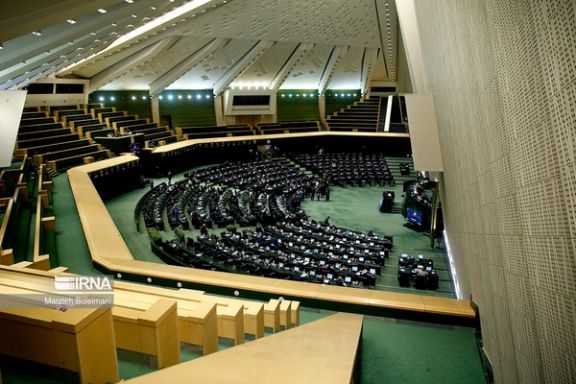
A member of the Iranian parliament's National Security and Foreign Relations Committee has said that the current "weak government" is the result of the presence of "a corrupt deviant group".
Morteza Mahmoudvand, a parliament member from Khorram Abad, informed reporters that most of Iran's problems stem from this corrupt faction within the government. He pledged to substantiate this claim with documents and evidence for the public.
He emphasized, "Despite the efforts of the current parliament to assist the government, certain deviant elements within the Raisi administration obstructed constructive measures, leading to a feeble government." He reiterated his statement as a seasoned political and security expert.
Mahmoudvand accused this deviant group of having connections to foreign entities, although he refrained from disclosing the identities of these individuals or the involved foreign countries. He asserted that these infiltrators have permeated the government and are responsible for the failures of the Raisi administration.
He revealed that he had informed President Ebrahim Raisi multiple times about these infiltrators but observed no action taken by the Iranian president. Mahmoudvand added that when Raisi formed his government, he lacked a cohesive team, allowing foreign-backed infiltrators to join his administration, potentially leading to a significant crisis for the nation.
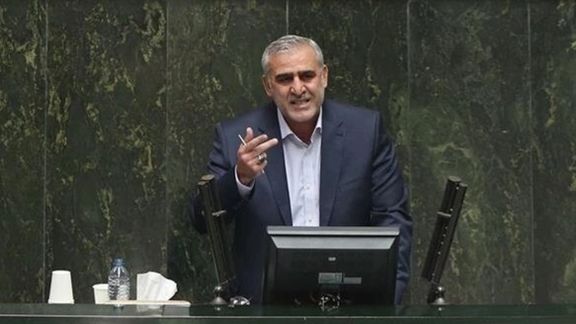
Similarly, former lawmaker Gholam Ali Jafarzadeh Imanabadi told reporters on Monday that individuals like Economy Minister Ehsan Khandouzi, lacking prior administrative experience, were suddenly promoted to cabinet positions. He expressed regret, saying, "I wish Raisi had never become Iran's President."
Imanabadi lamented the loss of the European market due to the inefficiency of government ministers and officials. He criticized the parliament, citing members who lack understanding of the country's realities and economic illiteracy.
He remarked, "There isn't a single economist among the members of the new parliament." He criticized the prevalence of populist radicals in the current parliament.
Iranian hardliners loyal to Supreme Leader Ali Khamenei barred hundreds of candidates from running for the March 1 parliamentary elections, paving the way for a relatively small circle of ultraconservatives to win many seats amid a low-turnout event.
Imanabadi said: "I am not happy about the government's failure. It is regrettable that as a result of the government's inefficiency the rate of exchange for the US dollar is now more than 600,000 rials. In the meantime, we have lost the European market as the government has shown more interest in transactions with regional countries. Our trade balance for the first nine months of the Iranian Year (late March to late December 2023) has been negative.”
He pointed out: "We have lost so many of our military men in Syria, but we hold only four percent of that country's market” This comes while more than 70 percent of the Syrian market belongs to Turkey, he said and added, "At the same time, the International Monetary Fund has acknowledged the sharp drop in the value of Iranian currency. This is the outcome of assigning big jobs to radical populists who do not understand the realities.
Pointing out the weakness of the parliament, Imanabadi said that only 7 percent of legislation by the current parliament have something to do with the country's economic situation.
The former commander of the IRGC's Khatamolanbia Headquarters Saeed Mohammad has in a recent interview highlighted the lack of coordination among the members of Raisi's economic team as one of the reasons for his administration’s economic failures. He asked: "Why the government does not ask itself for what reasons its economic slogans have not materialized?"
He questioned the administration's failure to fulfill its economic promises despite Khamenei's repeated emphasis on production growth.
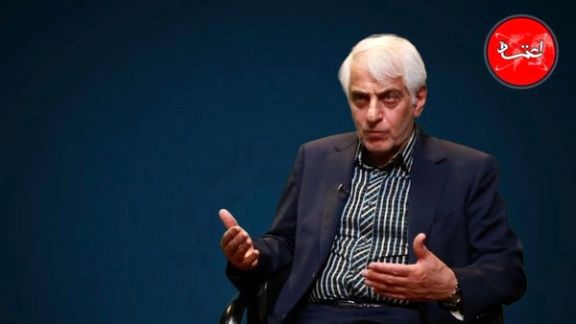
Ali Majedi, former Iranian Ambassador to Germany, has called for accepting conditions set by the Financial Action Task Force (FATF) and resolving foreign policy issues in the new Iranian year.
Speaking at a forum on international relations, Majedi stated that the FATF issue transcends geopolitics, emphasizing, "It's not about the US; it's about international regulations."
He pointed out that Iran's inclusion on the FATF blacklist poses hurdles to its economic activities and international relations.
FATF is a Paris-based inter-state financial watchdog that has penalized Iran for not adhering to international conventions on money laundering and financing of terrorism. In 2017, Iran's presidential administration proposed legislation to address FATF's concerns but hardliners have blocked its approval.
Regarding Iran's foreign policy challenges, Majedi cautioned against ineffective diplomatic approaches. He was referring to the dispute over Iran's nuclear program and relations with the West.
He criticized the current government's foreign policy team, labeling it as one of the weakest in history. Drawing parallels with past administrations, he highlighted the need for a technocratic approach to effectively advance Iran's foreign policy goals. Majedi emphasized the need for a competent negotiation team and strategic diplomatic maneuvering.
Iran finds itself increasingly isolated in the international arena due to a combination of factors, including its strained relations with the West, ongoing regional conflicts, and concerns over its nuclear program.
Despite efforts to engage diplomatically, Tehran's confrontational rhetoric and actions have exacerbated tensions with Western countries and Persian Gulf Arab states alike. The reimposition of sanctions by the United States, coupled with Iran's defiance, have further isolated the country economically and diplomatically.
Additionally, Iran's support for militant groups in the Middle East has fueled regional instability, leading to growing distrust and apprehension among its neighbors and the broader international community.